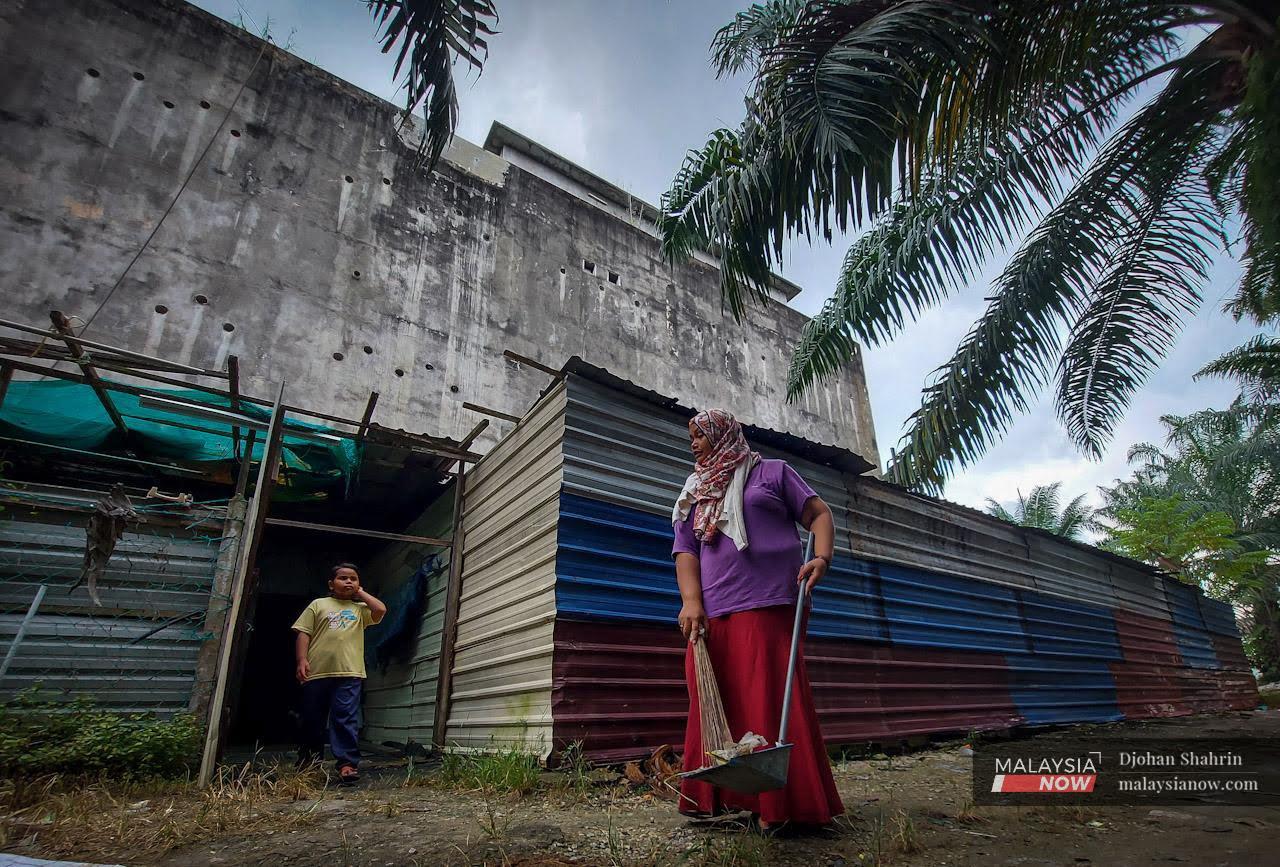Evicted from their home, mother and daughters live among birds instead
Hamidah and her two children now live in a grim grey building used to rear swiftlets for the harvest of their nests.
Just In
In the heart of an oil palm plantation in Sitiawan, Perak, stands a square, grey building used to farm swiftlets for the harvest of their nests.
But for the past three years, in addition to the birds, it has been home to three unexpected guests.
Hamidah and her two young children took shelter in the building after being evicted from their home in Taman Cempaka.
“The landlord asked us to leave because he no longer wanted us as tenants,” she told MalaysiaNow in a recent interview.
At that point, the country was in the midst of the first pandemic movement control order, and Hamidah’s options were limited.

“I met with a friend and he told me of a plantation owner who was looking for someone to guard his bird’s nest farm,” she said.
“He said he had many problems with people breaking in to steal the nests. That’s how I ended up living here with my children.”
Each morning, Hamidah wakes her younger daughter, Norfatin Asyikin, and helps her get ready for school. After she has seen the girl safely to the classroom, she heads off to work at a vegetable farm not far from their unlikely home.
At about lunch-time, she returns home to help her other daughter, Norfatin Nabilah, get ready for the afternoon session of school.
If she has any spare time, Hamidah roams the area collecting odds and ends of scrap metal or looks for fish at the nearby dam.
When she and the children first arrived, the building was dirty and filled with refuse.
Bit by bit, she cleaned out a space on the ground floor to make a home for the three of them.

Despite her best efforts, the building still looks bleak and deserted from the outside, where Hamidah has constructed a cooking area and a place to eat and wash their few plates.
She cooks over a fire made from the bundles of wood provided by the plantation owner. Around the area lie piles of rubbish.
Inside, three small rooms have been partitioned off, one for each member of the family. There is also a toilet space which the three of them share.
Hamidah does not have to pay rent for the building, only the water and electricity bills.
She and her daughters have been alone for years, ever since her husband left them.
She used to work as a cleaner at Tenaga Nasional Bhd but had to quit her job in order to take care of the girls.
Now Hamidah, who is in her mid-30s, collects vegetables at the farm for RM30 a day. She also does odd jobs like cleaning the bird’s nest area whenever the owner asks her to.

She owns a rickety old car, but it is now sitting in the repair shop, waiting to be given a new lease of life. For the moment, she is using a motorcycle borrowed from a friend in order to take her children to school and back.
She is thankful that the textbooks and other supplies that Asyikin and Nabilah need are provided for free by the school.
Internet connection is patchy in the plantation, but she did her best to encourage her daughters to continue learning throughout the various lockdowns, giving the girls her cheap mobile phone to share between them.
For the other miscellaneous expenses, Hamidah gets government assistance of RM250 a month which she stretches as far as it can go.

She and her daughters do not expect much in the way of Hari Raya celebrations this year.
In previous years, she was able to save enough to buy some rendang and ketupat to eat with her girls. This year, however, times are harder than usual.
“It’s all the same, we won’t be going anywhere,” she said.
“Our relatives are all far away. At the most, I’ll go to visit my mother in Taman Cempaka.”
Her greatest fear is that her children will grow up knowing no home other than the dirty grey building they share with the birds.
She is attempting to apply for aid from the religious authorities in order to get another small house.
Until then, though, she and her daughters make do with what they have, living one day at a time amid the birds and the oil palm trees.
Subscribe to our newsletter
To be updated with all the latest news and analyses daily.
